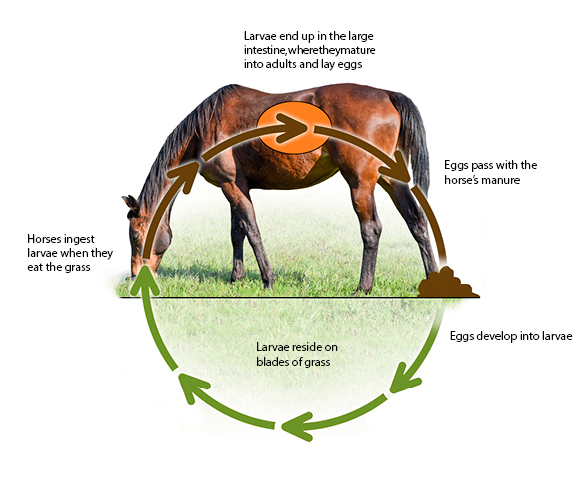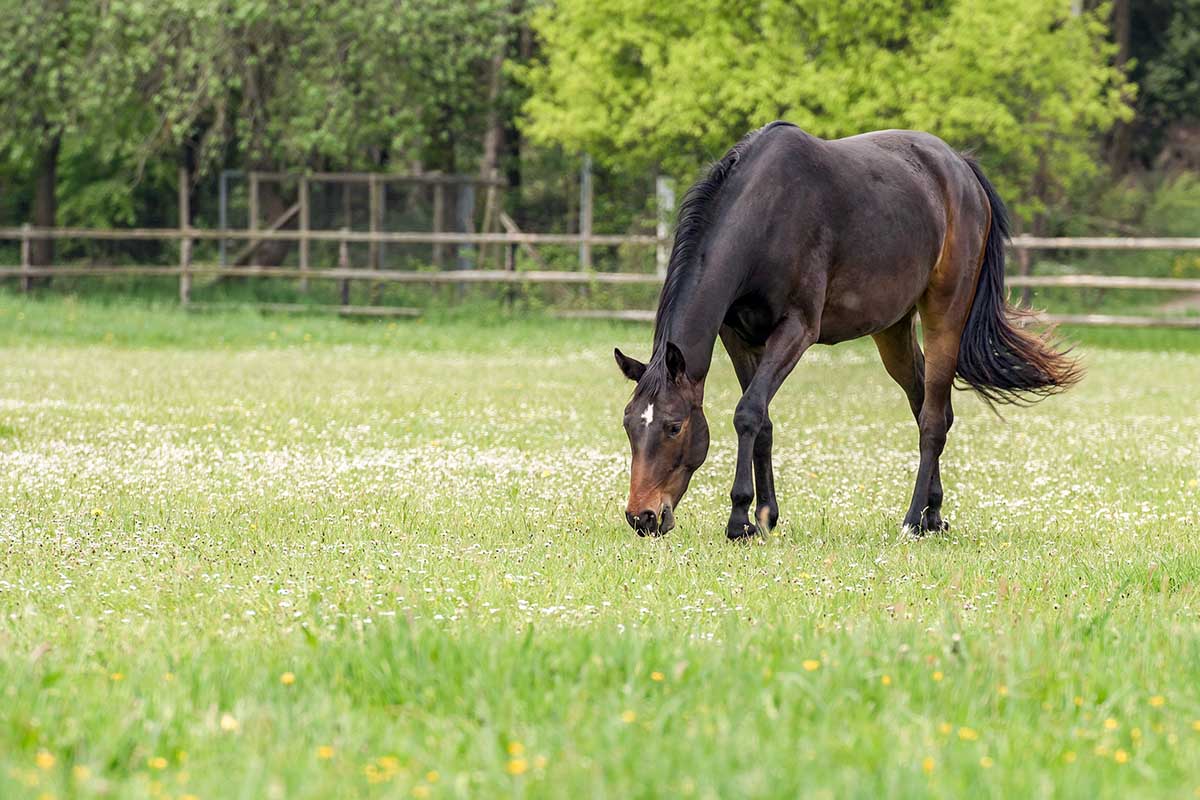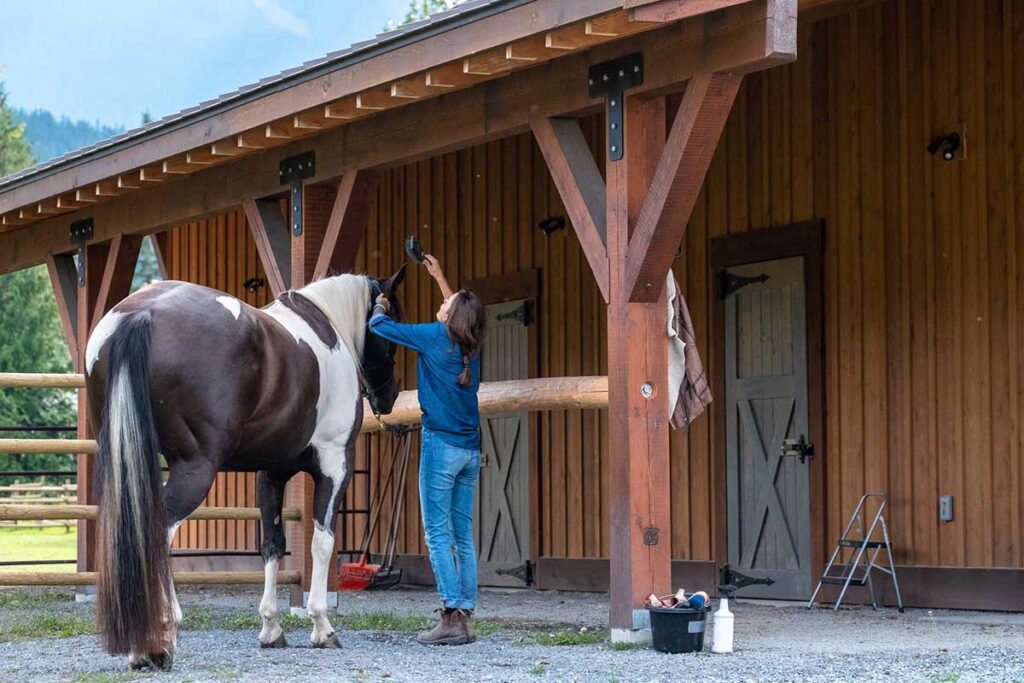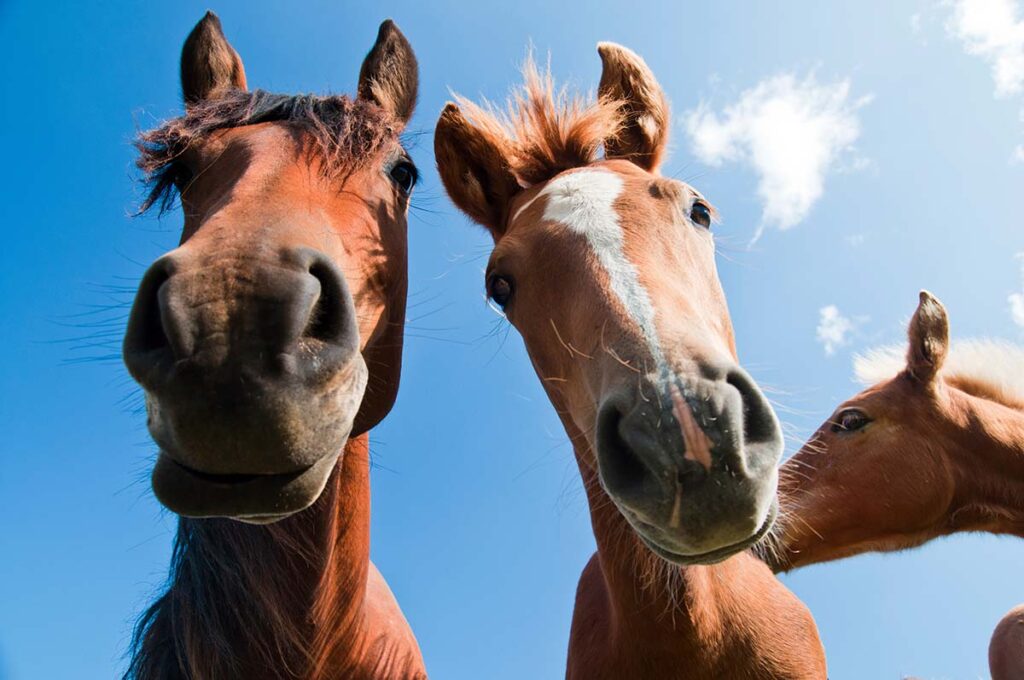Terms to Know
- Anthelmintic: a deworming drug
- Anthelmintic resistance: as internal parasites get exposed to increasingly more anthelmintics, they evolve to develop resistance against them, which passes on to future generations.
- Fecal egg count: the number of parasite eggs in a horse’s manure sample.
- Fecal egg count reduction test: the number of parasite eggs in a horse’s manure sample two weeks after deworming.
Horses must be dewormed periodically to prevent parasite infections that can cause weight loss, diarrhea, and colic (abdominal pain). All adult horses harbor some parasites, low levels of which are typically harmless. The key is preventing them from shedding so many parasite eggs into the environment that horses do develop large worm burdens and become sick. This is the goal of parasite control for horses.
Here’s how horses acquire and shed parasite larvae and eggs:

How to control parasites in adult horses:
- Gather fecal samples once or twice a year (typically in the spring and fall), and have your veterinarian run a fecal egg count to determine parasite egg shedding levels.
- Deworm, as needed, with the appropriate oral paste medication, as recommended by your vet.
- Two weeks later, run FECs again and compare the results to the first FEC results, which will help you determine whether the drug given is effective or if the parasites on your farm have become resistant to it.
- You only need to perform a fecal egg count reduction test for the dewormers you use every two or three years.
- Between treatments, regularly remove manure from paddocks and avoid letting horses overgraze pastures, if possible.
Here’s how to give a horse an oral dewormer:
Related Reading: Frequently Asked Questions About Deworming Horses
Are you enjoying this content? Sign up for My New Horse’s FREE newsletter to get the latest horse owner info and fun facts delivered straight to your inbox!








